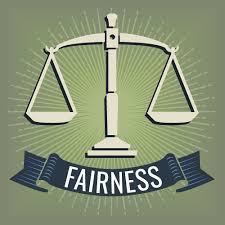Fair Hearing in Disciplinary Proceedings: Lessons from Dr Denloye's Case
- home
- Fair Hearing in Disciplinary Proceedings: Lessons from Dr Denloye's Case

- May 3rd 2025
- By Yusuf Balogun, Esq.
Fair Hearing in Disciplinary Proceedings: Lessons from Dr Denloye's Case
The case of Dr. E.O.A. Denloye v. The Medical and Dental Practitioners Disciplinary Committee is a significant decision in Nigerian legal history, particularly regarding professional disciplinary proceedings and the principles of natural justice. This summary provides an overview of the case, the legal principles involved, and its significance.
Background of the Case
Dr. Denloye, a medical practitioner, was accused of professional misconduct. The Medical and Dental Practitioners Disciplinary Committee conducted hearings against him and found him guilty of the charges, ordering the removal of his name from the Medical Register. Dr. Denloye challenged the decision, arguing that the proceedings violated the principles of natural justice.
The first count charged Dr. Denloye with neglecting a seriously ill patient, Fatilatu Bisiriyu, from June 29, 1966, until July 10, 1966, for whom he was responsible under the Ministry of Health in Western Nigeria. The second count alleged that he extorted 30 guineas from Bisiriyu Odumeru, the father of Fatilatu Bisiriyu, to induce him to allow Dr. Denloye to examine and treat her. The third, fourth, and fifth counts accused Dr Denloye of receiving £2.2s.0d. for false pre-employment fitness certifications.
Key Issue
The main issue was whether the disciplinary proceedings conducted by the Medical and Dental Practitioners Disciplinary Committee adhered to the principles of natural justice, especially the right to a fair hearing. Additionally, there was a question of whether the tribunal had the authority to adjudicate offences that fall under the Criminal Code.
Legal Principles Laid Down
1. Right to Fair Hearing: The Supreme Court emphasized the importance of natural justice, particularly the right to a fair hearing in disciplinary proceedings. The court stated that individuals facing disciplinary action must receive adequate notice of the charges and have a reasonable opportunity to present their defence.
2. Composition of the Disciplinary Committee: The court ruled that the composition of the disciplinary committee must be fair and impartial. Any bias or conflict of interest among committee members could invalidate the proceedings.
3. Adequate Notice and Opportunity to Defend: The court highlighted that the appellant must be given sufficient details of the allegations and a reasonable opportunity to respond. Failure to provide adequate notice or a proper opportunity to defend oneself constitutes a breach of natural justice.
4. Jurisdiction of the Disciplinary Committee: The court addressed the committee's jurisdiction, stating that it must operate within the scope of its statutory powers. Any actions taken outside this jurisdiction would be considered null and void.
5. Remedy for Breach of Natural Justice: The court held that a breach of natural justice renders the disciplinary committee's decision invalid. The affected individual is entitled to have the decision set aside, and if necessary, a retrial should be conducted by the principles of natural justice.
Decision of the Court
The Supreme Court ruled in favour of Dr Denloye, concluding that the disciplinary proceedings violated the principles of natural justice. As a result, the court set aside the decision of the Medical and Dental Practitioners Disciplinary Committee and ordered a retrial.
This case is a landmark decision in Nigeria's administrative and professional disciplinary law. It reaffirms the importance of adhering to the principles of natural justice, particularly the right to a fair hearing in disciplinary proceedings. The judgment serves as a precedent to ensure fairness and due process in regulating professional conduct.
Reference: The Law Global Hub, Dr. E.O.A. Denloye v. Medical and Dental Practitioners Disciplinary Committee, (1968)(https://www.lawglobalhub.com/dr-e-o-a-denloye-v-medical-and-dental-practitioners-disciplinary-committee-1968-lljr-sc/)
Image source : https://www.wscff.org/why_unions/without-a-union-there-is-no-system-of-due-process-no-guarantee-of-a-fair-hearing-no-one-to-stand-up-for-your-rights/
DISCLAIMER NOTICE
This is a free educational site for your general information and enlightenment ONLY. This site, by itself, does not create a Client/Attorney relationship. Recipients are therefore advised to seek professional legal counselling to their specific situations when they do arise. Questions, comments, criticisms, suggestions, new ideas, contributions, etc are welcome. The articles here, are protected by Intellectual Property Law and Regulations and is reproduced by Medical Law Hub under permission for the Medical Law Hub community.

Speak With Our
Contact Us

